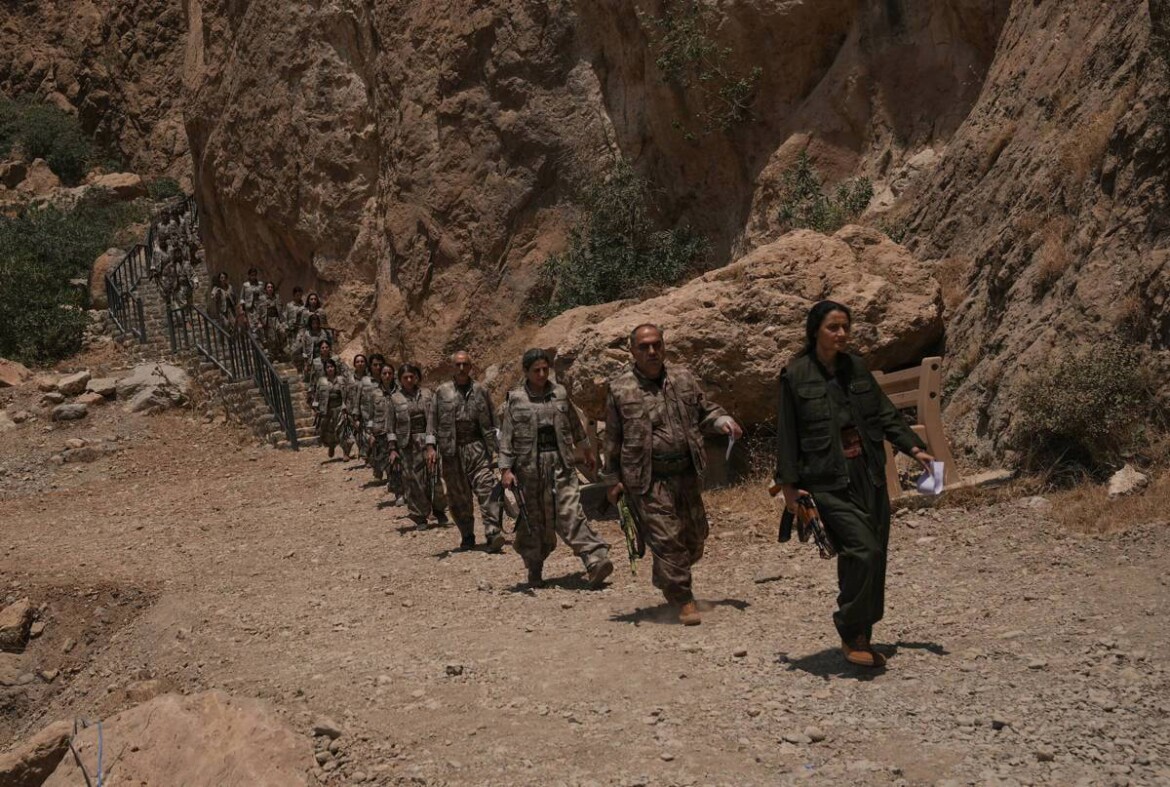Analysis
Erdogan sings victory but admits past horrors
One passage of Erdogan’s commemoration speech was particularly unexpected: an admission of the Turkish state's mistakes, which comes after decades of denial and touches on symbols that have never been evoked lightly in the recent history of the Republic.

“The best is yet to come. We in the AKP [the majority party] together with the MHP [an ally] and DEM [pro-Kurdish opposition party] parties have decided to walk this path together. There are difficulties, but by joining hands we will overcome the obstacles. There is no longer any need to clench our fists.”
It was a speech about the peace process, one might say, but in the president's vocabulary it is never called that: for Erdogan, it is the path towards a “Turkey without terrorism.” He spoke of “a great Turkey, a strong Turkey,” of the beginning of “a Turkish century.” And as expected, he claimed the disarmament of the PKK as a victory: “Turkey has won. 86 million citizens have won.”
“The founding leader of the PKK kept his word and foresaw the global and regional threats in time,” said MHP leader Devlet Bahçeli, commenting on Friday's disarmament ceremony. Erdogan, on the other hand, maintained a tone that seemed calibrated to convince his electorate to support the process. One passage, however, was particularly unexpected: an admission of the Turkish state's mistakes, which comes after decades of denial and touches on symbols that have never been evoked lightly in the recent history of the Republic.
“After the first attack in 1984,” said the Turkish president, “terrorism in Turkey increased day by day. Since then, all successive governments have promised to eradicate terrorism. But terrorism has not been eradicated. Of course, some of the state's misconduct played a role. The Beyaz Toros massacre is among them, as are the unsolved murders and the Diyarbakır prison.”
“Beyaz Toros” are two words that for entire generations of Kurds, and not only, evoke one of the darkest chapters in Turkey's history. The white Toros, Renault 12s produced by the military-industrial giant Oyak, were the cars in which, in the 1990s, the secret services and Jitem death squads roamed the streets of the Kurdish provinces, kidnapping opponents, journalists, lawyers, and activists. Many of them were never seen again.
The “extermination plan,” as many still call it today, was far more than the excesses of a few corrupt police officers: it was an organized mechanism of repression, fueled by military intelligence. With the support of the army, Jitem raided villages, set houses on fire and forced entire families to flee. Those who did not flee were disappeared, executed, thrown into acid pits. Then the blame was placed on the PKK guerrillas.
Among the many swallowed up by the Beyaz Toros tragedy was Savas Buldan, a Kurdish businessman suspected of supporting the PKK, husband of Pervin Buldan, a member of the Dem delegation in charge of talks between Abdullah Öcalan and Ankara.
Names such as Mahmut Yıldırım, known as “Yesil,” and Tarık Ümit, executioners, recruiters and leaders of those clandestine units, are still brandished as threats today. In 2023, during a match against Amedspor, the Kurdish team that is a symbol of Diyarbakır, Bursaspor fans, a stronghold of the far right, displayed three huge banners: the faces of Yesil, Ümit, and the white Renault Toros. It was a warning, a death threat. Clashes and attacks followed.
“The villages burned down, the people forced to flee during the night, and the mothers unable to speak Kurdish with their children in prison are just examples of these wrong practices,” Erdogan admitted. “Instead of ending terrorism, these illegal and illegitimate methods of fighting it have fueled it.” This is an admission that is undoubtedly positive, albeit incomplete. The crimes committed under his own governments were deliberately excluded from the president's speech: the destruction of Sur, Cizre, and many other cities after the collapse of the previous negotiations, as well as the systematic takeovers of Kurdish municipalities, now extended to municipalities administered by the CHP.
“While extraordinary commissioners are being appointed over CHP municipalities, I do not accept to return to office. For that to happen, all commissioner appointments should be revoked,” said Ahmet Türk, mayor of Mardin for the DEM party, who was removed from office a few weeks after being installed.
Now the president promises to establish a parliamentary commission to monitor the process, as already noted by Bahçeli, and promises to turn the page.
Originally published at https://ilmanifesto.it/erdogan-canta-vittoria-ma-ammette-gli-orrori-passati on 2025-07-13
